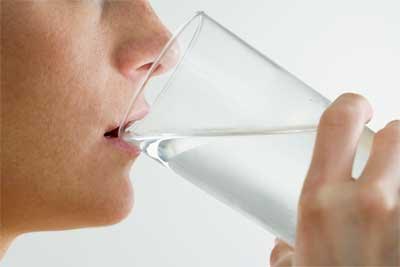- Home
- Editorial
- News
- Practice Guidelines
- Anesthesiology Guidelines
- Cancer Guidelines
- Cardiac Sciences Guidelines
- Critical Care Guidelines
- Dentistry Guidelines
- Dermatology Guidelines
- Diabetes and Endo Guidelines
- Diagnostics Guidelines
- ENT Guidelines
- Featured Practice Guidelines
- Gastroenterology Guidelines
- Geriatrics Guidelines
- Medicine Guidelines
- Nephrology Guidelines
- Neurosciences Guidelines
- Obs and Gynae Guidelines
- Ophthalmology Guidelines
- Orthopaedics Guidelines
- Paediatrics Guidelines
- Psychiatry Guidelines
- Pulmonology Guidelines
- Radiology Guidelines
- Surgery Guidelines
- Urology Guidelines
Less water intake accelerates urine infection

New Delhi : Winter problems are no longer restricted to cough, cold and flu. When the temperature drops and the cold winds begin to blow, the air becomes drier and our bodies get less moisture than they do in warmer months, leading to dehydration. And that is the first step towards a Urinary Tract Infection (UTI).
UTI refers to a bacterial infection anywhere in the urinary tract, such as the bladder, kidneys, ureters, or the urethra and one tends to be exposed to such infections in winters.
Dr. Anant Kumar, Chairman - Urology, Renal Transplant, Robotics, and Uro-Oncology Max Super Speciality Hospital, Saket said, " Our bodies suffer from UTI in winters as we stop drinking water. While we can invest in any warm beverage rather than icy water when it comes to wintertime, it's still critical to maintain the water intake. Consumption of less water, especially during winter is one of the main causes that worsen UTI."
Moreover, the main symptom of the infection which is burning sensation is usually considered a result of eating high calorie rich food during this season. This delays the patients from approaching the doctors on time. Also, women who make contact with the infections are so apprehensive of reporting it to the doctors that they prefer to self-medicate, which in turn makes the infection acute.
While most cases of bladder infection occur suddenly, others may recur over the long-term. Early treatment is keys to preventing the spread of the infection. Bacteria that enter through the urethra and travel into the bladder cause bladder infections. Normally, the body removes the bacteria by flushing them out during urination. This overwhelms the body's ability to destroy them, resulting in a bladder infection.
According to Dr. Kumar, for preventing bladder infections the following lifestyle changes may help reduce or eliminate the occurrence of bladder infections:
- Change underwear daily: Since women are more prone to infections, they should change their undergarments twice a day.
- Don't hold urine: Urinate as soon as you feel the need. Holding urine for long multiplies the bacteria, thus causes infection.
- Wear cotton underwear: Cotton underwear's are comfortable, especially for women as it helps keep the vagina dry. Synthetic underwear's cause excessive friction, thus leading to discharge of fluid which causes irritability
- Don't Use feminine hygiene sprays: The pH in the vagina regulates itself, and douching or spraying, changes the equilibrium.
- Urinate before and after sexual activity: Urinating right after sex can help prevent the spread of faecal bacteria to the bladder and thus reduce the risk of UTIs. Men should pass urine each time after the sexual intercourse.
Here are the five most effective bladder infection remedies:
- Drink more water: Have at least 2 litres of water every day. Water flushes out the bacteria in your bladder, helping to eliminate the infection faster. It also dilutes your urine, so urination may be less painful.
- Antibiotics: Antibiotics kill the bacteria causing the bladder infection. Antibiotics may not always be needed. In some cases, a minor bladder infection can resolve on its own. It might cause symptoms for a day or two, but with increased hydration and urination, it may pass.
- Heating pads: Putting low heat across your abdominal region or back may soothe the dull ache that sometimes occurs during bladder infections. This can be especially helpful if medications aren't enough to ease your discomfort.
- Appropriate dress: Bacteria thrive in warm and moist environments.
Tight jeans and other snugly fitting clothes can trap moisture in your most delicate areas, making them a breeding ground for bacteria. Wearing loose, casual clothing that allows your skin to breathe can keep the bacteria in your urinary tract at bay.

Disclaimer: This site is primarily intended for healthcare professionals. Any content/information on this website does not replace the advice of medical and/or health professionals and should not be construed as medical/diagnostic advice/endorsement or prescription. Use of this site is subject to our terms of use, privacy policy, advertisement policy. © 2020 Minerva Medical Treatment Pvt Ltd